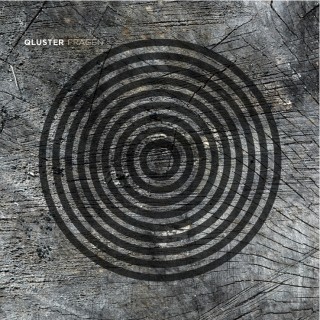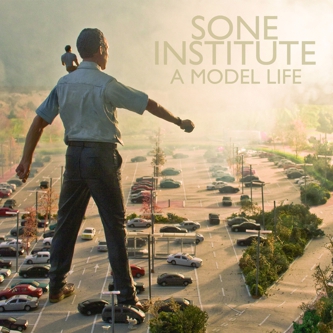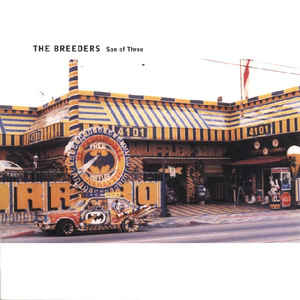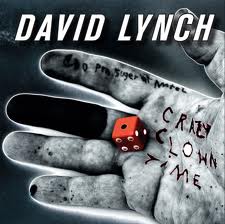 Picture the scene: a dystopian future cityscape at night, vast, overcrowded to the point of rupture, a teeming mass of humanity thronging across its frantic streets. Enormous illuminated signs flicker, punctuating the darkness, their garish primary-colour glow reflecting off the chrome and glass surfaces of the skyscrapers and the rain-drenched pavements far below. The driver glides your Spinner™ hovercar slowly and smoothly through the air as you look out at the panoramic vista beneath you, the raindrops trickling down the Plexiglas window, each bead of water a tiny lens on the world outside. And there is music playing. It is glacial, electronic, beautiful…
Picture the scene: a dystopian future cityscape at night, vast, overcrowded to the point of rupture, a teeming mass of humanity thronging across its frantic streets. Enormous illuminated signs flicker, punctuating the darkness, their garish primary-colour glow reflecting off the chrome and glass surfaces of the skyscrapers and the rain-drenched pavements far below. The driver glides your Spinner™ hovercar slowly and smoothly through the air as you look out at the panoramic vista beneath you, the raindrops trickling down the Plexiglas window, each bead of water a tiny lens on the world outside. And there is music playing. It is glacial, electronic, beautiful…
Fragen is the first fruit of Qluster’s renewed round of studio recordings, and, moreover, the initial part of a putative trilogy. Given that the album’s title is the German verb for ‘to ask,’ the questions asked seem to have been first and foremost of themselves and their working methods. The answers („die Antworten”) have proved hugely interesting, consisting of the decision to record using only analogue keyboards, and to use improvisation as the dominant playing technique.
These Antworten certainly give Fragen a different texture to previous works in the Kluster/Cluster œuvre. The opening track, “Los geht’s,” sets us right aboard that Spinner™ – the gnomic detective driving and watching hawk-like out of the corner of his eye. It’s a truly stunning track, managing the Herculean feat of sounding genuinely futuristic in this most post-futuristic of ages, the Space Shuttle facing its imminent final demise and all the high frontier optimism and forward thinking of the Space Age officially over, thrown to the back of the cupboard like a child’s once gleaming but now unwanted toy: Buzz Aldrin reduced to a broken plastic Buzz Lightyear. Well, if N.A.S.A. can no longer provide us with inspiring moments of exploration out in the darkness of space, at least Qluster can paint us the audio picture of might have been.“Auf der Alm” is a melancholy affair, transforming from a soundscape of whistles and vintage telephone dial tones into a wistful lament. “Zartbitter” carries some subtle hints of Phil Niblock, but Niblock as performed in a Zen garden, its electronic pitches arranged into patterns like the raking of the gravel to recall waves or rippling water. “Wurzelwelt” (sadly not the Wurzels / Kraftwerk hybrid that the listening world has been crying out for since the 1970s) is an extended 13-minute tone poem that fuses immediate micro-tones with ambient drones and gently discordant scales. “Fünf nach eins” is lovely two-minute piece, its electronic squelches like John Cage jamming with (first-issue) Human League.
“Haste Töne” could lie as across Duncan Jones’ Moon as an affecting modern science fiction soundtrack, its flowing linear progression hinting at a narrative, yet never quite resolving into a definitive statement. Along with the opening track, it constitutes the album’s highest point; sad, elegiac and irresistible. Fragen closes with “Josef Z.,” a track that comes closest to recalling the German music of the 1970s, the scarred and divided Berlin of the cold war, and, at times, of what David Bowie took from that milieu and fashioned into something truly wonderful on Low and Heroes. Bowie later stated that those same albums represented “a yearning for a future that we all knew would never come to pass.” Something of that same yearning seems to permeate Fragen in a similar way.Pioneers such as Roedelius always run the risk of their innovative experiments losing their lustre over time, the one-time startling immediacy of their newness replaced by a vague sense of over-familiarity. Here, however, far from sounding like a band fleet-footed now turned leaden, Qluster are striking out for a new frontier, the music here like the electronic sounds of the telemetry instrumentation that monitors their journey.
We can only wish them luck.
-David Solomons-



